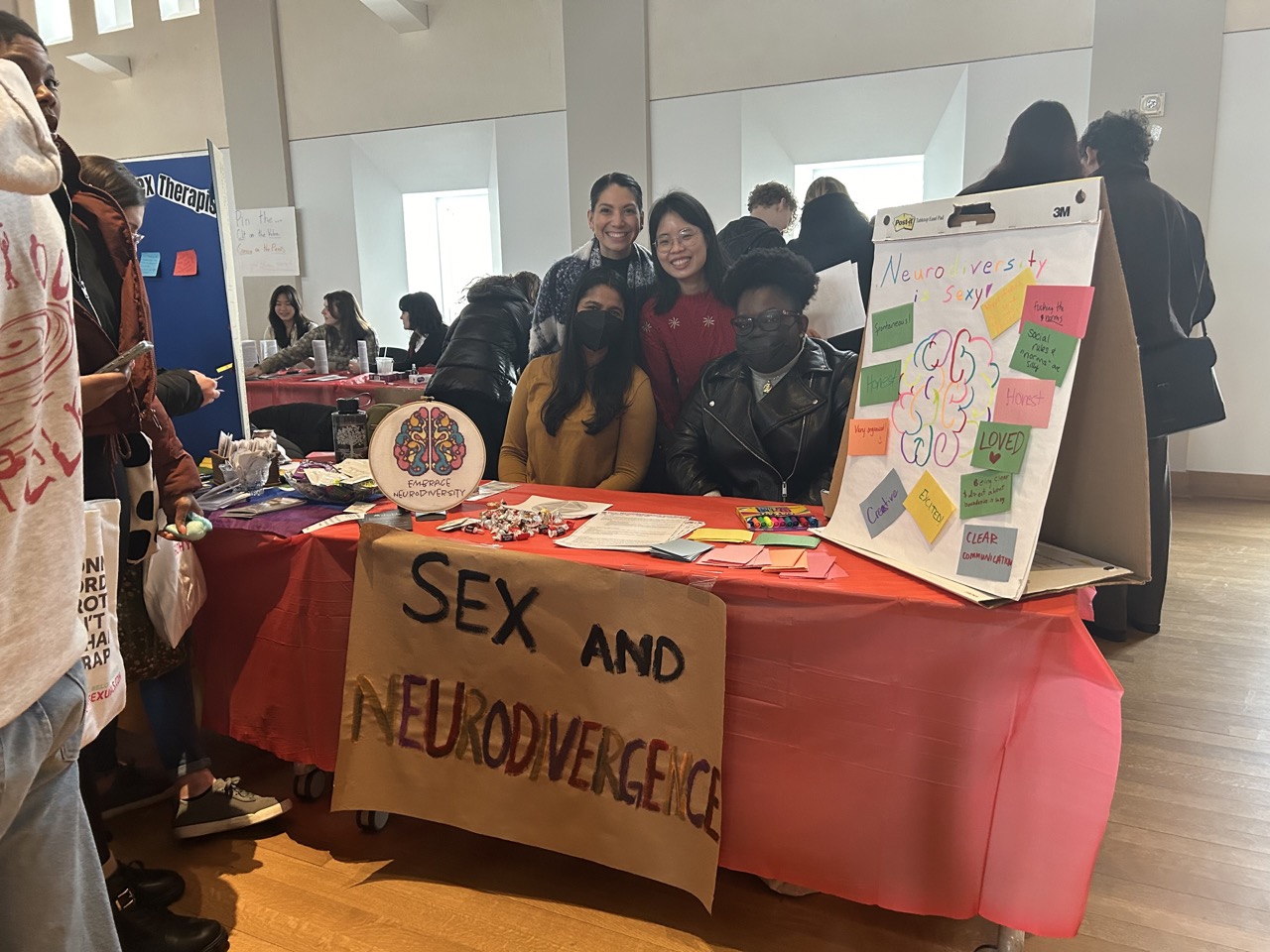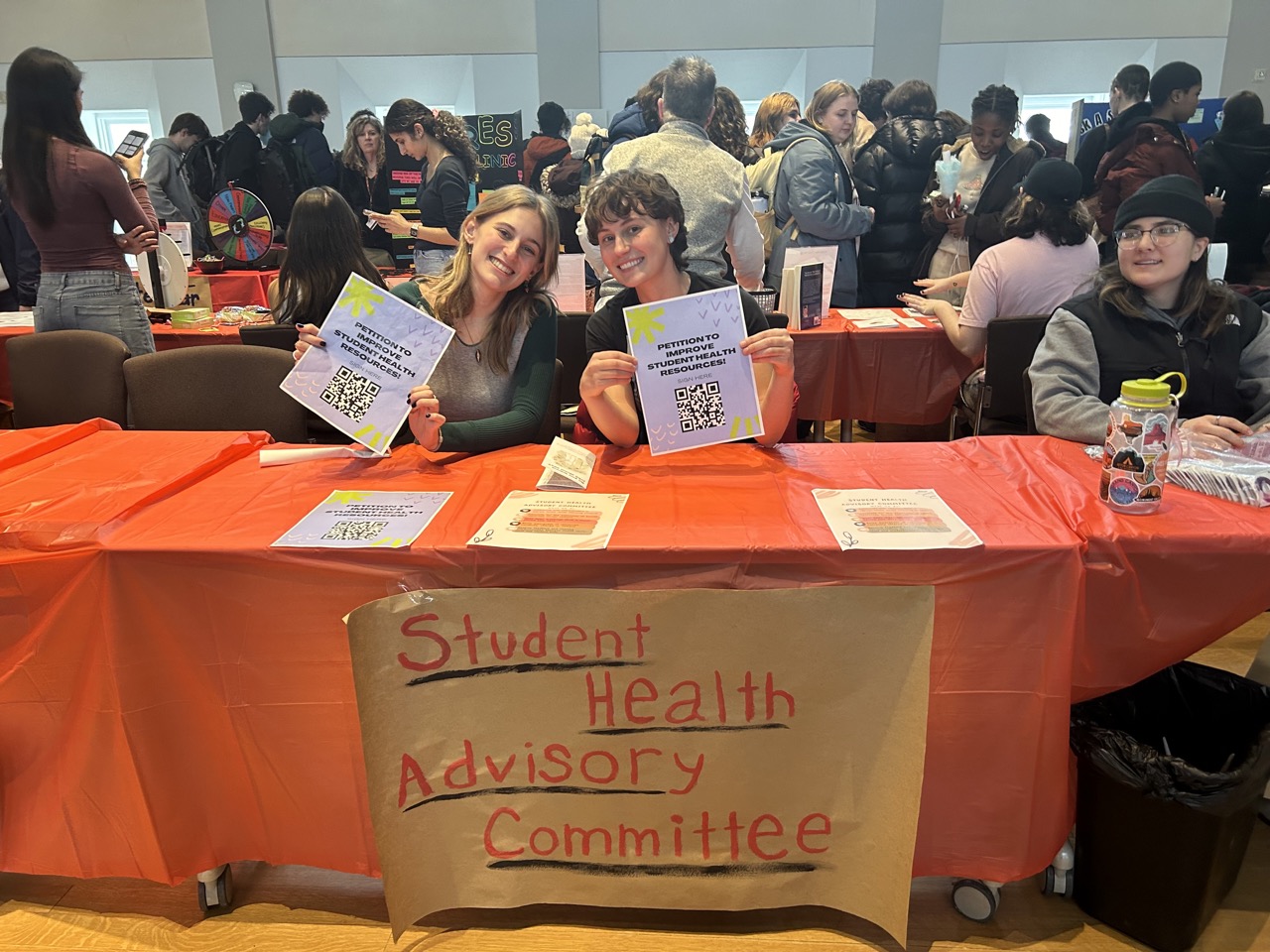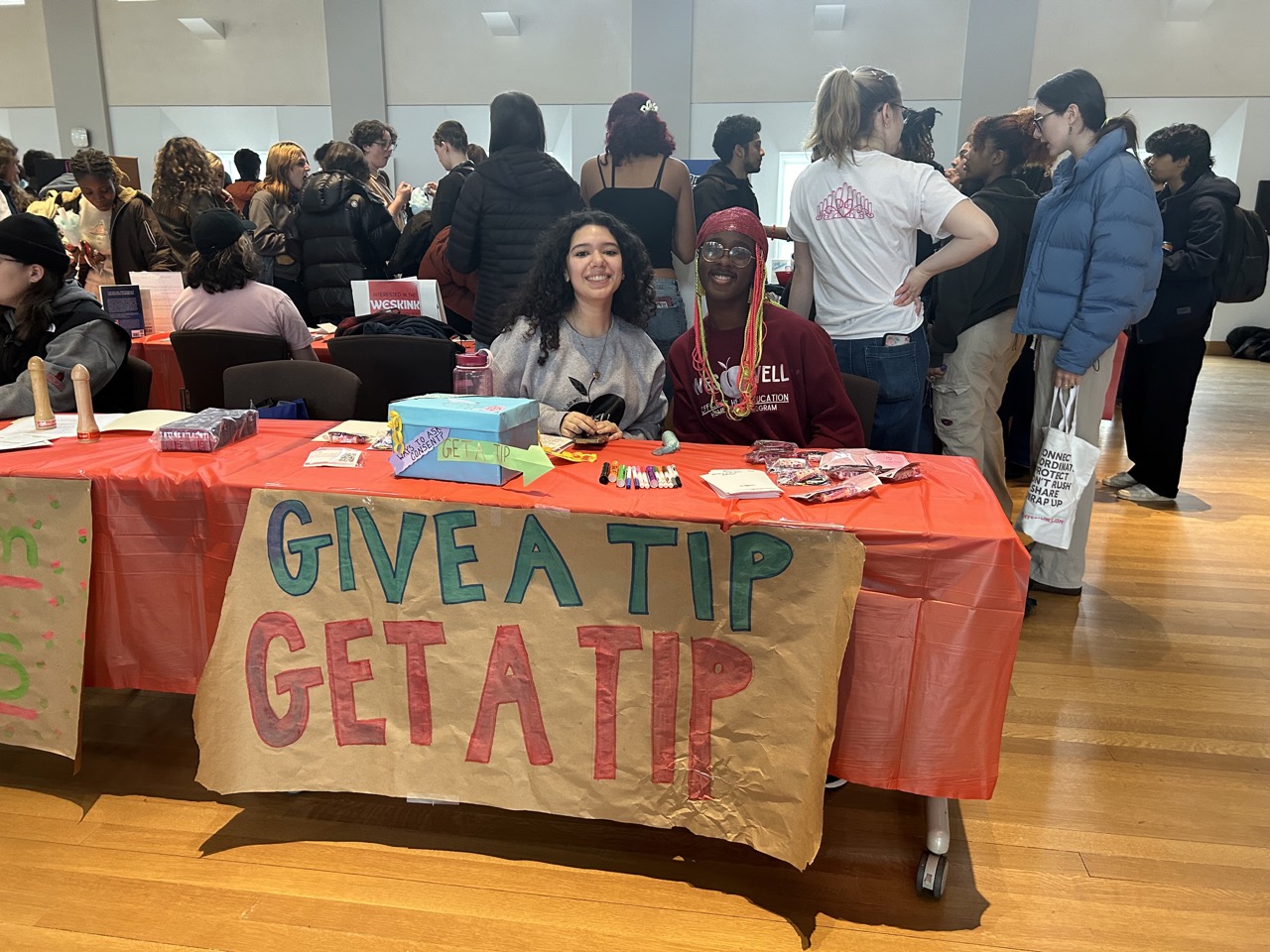
c/o Sulan Bailey
The Office of Health Education (WesWell) hosted its second annual Sex Carnival on Friday, Feb. 23 in Beckham Hall. Despite the day’s pleasant and relatively warm weather, which may have kept some outside basking in the sun, over 250 Wesleyan community members visited Beckham over the two-hour run of the Carnival. The Sex Carnival included 34 tables at which attendees could participate in games and activities related to sex and sex education. WesWell partnered with student groups and Middletown community organizations to deliver interactive, educational information about sex to the students, faculty, and staff in attendance.
Through this year’s Sex Carnival, the WesWell team aimed to create an inclusive, safe, and fun environment to learn about sex—a topic that remains stigmatized in many communities. WesWell Director September Dibble outlined the objectives that her office sought to achieve.
“The Sex Carnival is a great event…to learn more about sexual health, reproductive health, pleasure, sexual violence prevention and more in a fun and safe environment,” Dibble wrote. “Our goal is to provide comprehensive sex education to campus while also making sure that our work and the information we share is pleasure positive and inclusive of all. Carnivals are fun, sex should also be fun.”
WesWell staff has been working with its campus and community partners to organize this year’s Sex Carnival since the Fall 2023 semester. Dibble explained the motivations behind introducing community programs to the second installment of the event.
“This year, we expanded the carnival to make it a more community-built event and hosted a call for programs to share expertise at the event,” Dibble wrote in an email to The Argus. “We know we have many folks at Wes who may be conducting research related to these subjects or volunteering in their free time with organizations that focus on these topics, and [it was] a great event for folks to share their knowledge and expertise.”
Dibble noted that the Sex Carnival grew in more than one way this year, not only incorporating community partners but also increasing attendance. She expressed her enthusiasm for these changes.
“We also have multiple community organizations that expressed interest in the carnival and will be present such as the Center for Key Populations, Planned Parenthood and the Women & Families Center,” Dibble wrote. “We are so excited about the community interest in this event and how much it has grown in just one year!”
This year’s event included some booths that were featured in the previous installment, including the Ask a Sex Therapist table and condom race game. WesWell Health and Wellness Intern Vanessa Angeles ’24 described some of her favorite activities to facilitate during the event.
“I was excited to do the Condom Races because a lot of the time, people go into it thinking they know how to put on a condom and they just want to do a silly race with their friends, but then they realize they might not know as much as they thought,” Angeles wrote in an email to The Argus. “There could be a variety of reasons as to why someone might not be as aware of safer sex practices—but that’s why we do these…without judgement so that students can be as informed as possible to make decisions that are best for them about whatever sexual activity they may be getting into.”

c/o Sulan Bailey
The inclusion student groups and community organizations increased the number of tables from 7 last year to 34 this year. Spectrum, Adolescent Sexual Health Awareness (ASHA), and the Wesleyan Period Coalition were among the student groups that had booths at this year’s Sex Carnival. The Student Health Advisory Committee (SHAC), a group that works to connect the student body with healthcare staff on campus, also tabled to raise awareness about their student health petition. SHAC representative Chantal Dunn ’25 explained the group’s goals for this semester.
“We work as a point of contact between the student body and the healthcare staff on campus,” Dunn wrote in an email to The Argus. “The goal of the group is to increase communication between staff and students to ensure that our health facilities offer the most up to date resources and care possible.”
According to Dunn, the SHAC petition has nearly 200 signatures as of Wednesday, Feb. 28. Dunn also described how she and her peers hope the petition will improve student health resources on campus.
“Recently, we’ve identified areas where our health programs are currently understaffed, underfunded, or in need of updates,” Dunn wrote. “SHAC has combined input from students and healthcare staff to finalize a series of demands to improve our health resources on campus.”
In addition to facilitating dialogue about the necessity of health resources, the Sex Carnival also encouraged students to engage in healthy conversations about sex.

c/o Sulan Bailey
“[The Sex Carnival] aims to get students talking, or at least thinking, about their own pleasure and how they can feel empowered to seek what makes them feel good instead of just following any social scripts they may have internalized about sex,” Angeles wrote.
Angeles also explained that inclusivity was a priority for WesWell when sharing information at the Sex Carnival.
“I helped out a good amount with the Give a Tip, Get a Tip booth by cutting out a good amount of the tips we were giving out,” Angeles wrote. “[A]fter researching a bit to make sure I was getting information that would help students with various sexual interests/sexualities, I even got to submit some of my own that were able to be distributed to some students!”
Ultimately, Dibble and her team hoped that students would leave the Sex Carnival with accurate information that can empower them to prioritize sexual health and pleasure in their sexual experiences.
“Everyone deserves healthy, pleasure-filled relationships and WesWell is here to help make sure you get comprehensive and medically accurate information about sexual health topics so you can make the decisions that are best for you,” Dibble wrote.
Sulan Bailey can be reached at sabailey@wesleyan.edu.